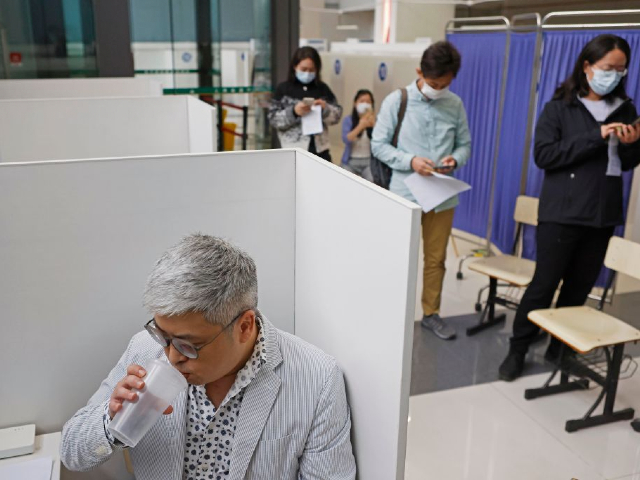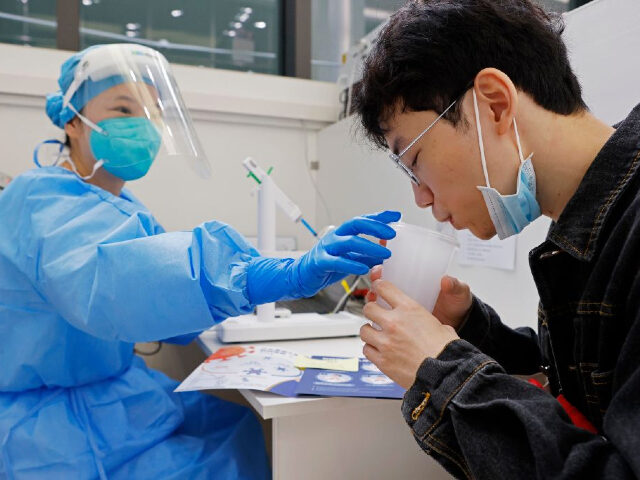China’s state-run Global Times on Wednesday claimed the rollout of an experimental aerosolized coronavirus vaccine in Shanghai was a smashing success because test subjects love inhaling the sweet-smelling gas.
The Chinese Communist Party is keenly interested in a successful launch of the vaccine booster inhalers, a joint project of CanSino Biologics and the Chinese military. If the project proves to be successful, China will have beaten several other projects around the world to create an inhalable booster.
Unlike most of the other projects underway, China’s inhalable is taken orally instead of through the nose, using a dispenser that resembles a child’s sippy cup. The Global Times played up the appealing taste of the gaseous booster shot:
The Global Times talked to several residents who received the vaccine, and most of them expressed confidence. “I want to follow the country’s epidemic prevention and control measures and the booster doses can help enhance immunity, which is also a way to be responsible for my family members as well as society,” a 36-year-old Shanghai resident surnamed Shen told the Global Times on Wednesday.
“The whole process is very convenient. It also tastes a little bit sweet,” Shen said.
Another person surnamed Yuan, who has been living in Shanghai for two years, told the Global Times he felt that it was “very convenient” and especially good for people who are afraid of being injected.
Other accounts from Shanghai residents commented on the sweet taste of the vapor and compared it to “drinking a cup of milk tea.”

SHANGHAI, CHINA – OCTOBER 26: A resident takes inhaled booster vaccination on October 26, 2022 in Shanghai, China. An inhaled COVID-19 booster vaccination has become available in Shanghai starting on Wednesday. Over 23 million people have been fully vaccinated and 12 million have received a booster shot in Shanghai before. (Photo by Yin Liqin/China News Service via Getty Images)
Of course, the real question will be if the aerosolized booster proves effective at mitigating Chinese coronavirus infections. Chinese regulators approved the CanSino product only last month, based on limited testing that suggested the inhalable booster increased immune system responses in subjects who had already been fully vaccinated.
India has also approved a nasal aerosol booster, based on technology developed at Washington State University in Missouri, but it has not been deployed yet. The World Health Organization (W.H.O.) reports there are roughly a dozen nasal vaccines under development worldwide. The theory behind these vaccines is that since they are administered at the first point of contact a patient has with the airborne Chinese coronavirus virus, they might be able to block potential infections.
The projects outside of China are focused on nasal delivery because the nose is where the Chinese coronavirus is thought to most likely enter the body. The treatment involves using an inert adenovirus, the common cold, to “infect” the subject with the spike proteins that produce an immune response to the coronavirus.
The nasal vaccine approved by India proved effective at generating an immune response in humans during a clinical trial, and was notably effective as either a first shot or a booster, whereas China’s mouth-inhaled aerosol vaccine is meant to be used only as a booster.

COMMENTS
Please let us know if you're having issues with commenting.